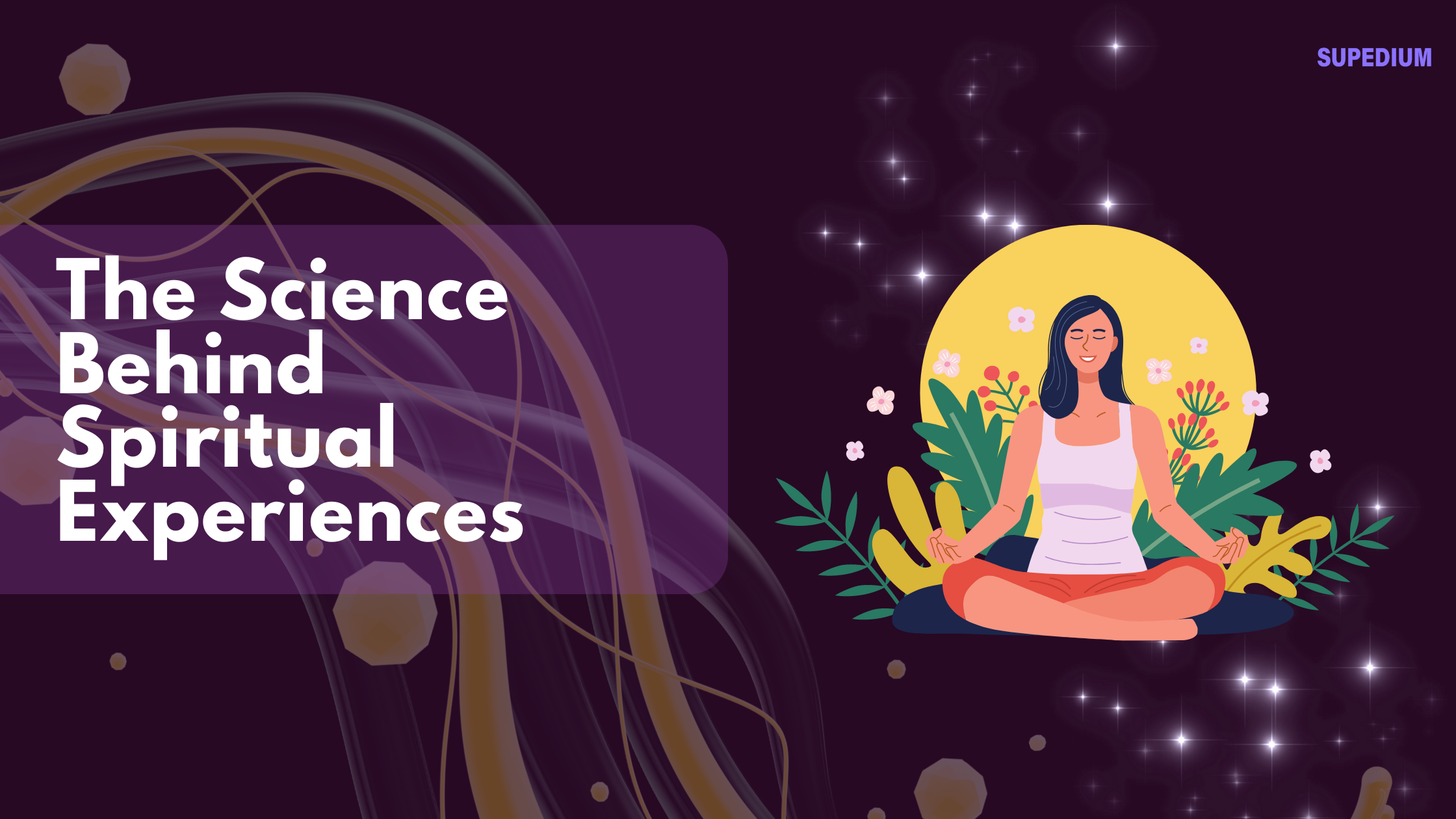Table of Contents
![]()
I. Introduction
Spiritual experiences often involve profound feelings of transcendence, unity, or enlightenment. These experiences, described variously across cultures and religious contexts, can be intensely personal and transformative. In exploring the science behind these experiences, we seek to understand their psychological, neurobiological, and physiological underpinnings, as well as their impact on individuals and societies.
II. Historical and Cultural Perspectives
Historical Overview
Spiritual experiences have been documented throughout history, from ancient mystical traditions to modern-day contemplative practices. In early civilizations, such experiences were often attributed to divine or supernatural forces. For instance, the mystical visions of saints in Christianity or the enlightenment experiences of Buddhist monks have long been recorded. Over time, these experiences have evolved in interpretation, reflecting changes in religious and philosophical frameworks.
Cultural Variations
Spiritual experiences vary significantly across cultures. In Eastern traditions, such as Hinduism and Buddhism, experiences of enlightenment and unity with the cosmos are central. In contrast, Western traditions, like Christianity and Islam, may frame spiritual experiences in terms of communion with God or divine intervention. These cultural differences highlight how spiritual experiences are often shaped by religious and social contexts.
III. Psychological Perspectives
Cognitive Psychology
From a cognitive perspective, spiritual experiences often involve altered states of consciousness. Research using neuroimaging techniques has identified specific brain areas associated with these states, including the temporal lobes and parietal lobes. Cognitive processes such as heightened awareness, altered perception of time, and a sense of unity with the environment are frequently reported during such experiences.
Developmental Psychology
The nature of spiritual experiences can change throughout an individual’s life. Early experiences, shaped by family and cultural influences, often set the stage for later spiritual development. Developmental psychology examines how these experiences may evolve from childhood through adulthood, influenced by personal growth and life circumstances.
Psychological Theories
Carl Jung’s concept of archetypes and the collective unconscious provides a framework for understanding spiritual experiences. Jung posited that certain universal symbols and themes recur across different cultures and religions, suggesting a shared, underlying psychological structure. Similarly, Abraham Maslow’s idea of peak experiences highlights moments of intense joy and self-realization, which can be seen as a form of spiritual experience.
IV. Neurobiological Aspects
Brain Activity and Spirituality
Neuroimaging studies have provided insights into the brain activity associated with spiritual experiences. Functional Magnetic Resonance Imaging (fMRI) and Positron Emission Tomography (PET) scans have identified increased activity in brain regions such as the temporal lobes and the posterior superior parietal lobes. These areas are linked to perception, self-awareness, and the sense of interconnectedness.
Neurotransmitters and Hormones
Neurotransmitters like serotonin and dopamine, as well as hormones such as endorphins, play crucial roles in the regulation of mood and perception. Elevated levels of these chemicals have been associated with feelings of bliss and transcendence. For example, serotonin is known to influence mood and consciousness, which can impact the nature of spiritual experiences.
Altered States of Consciousness
Altered states of consciousness, induced by practices like meditation or fasting, often lead to spiritual experiences. Similarly, psychedelic substances, such as psilocybin or LSD, can produce profound shifts in perception and consciousness, sometimes resulting in experiences akin to mystical or spiritual insights. Comparing these states can offer valuable insights into the nature of spiritual experiences and their underlying mechanisms.
V. Physiological and Environmental Influences
Impact of Physical Health
Physical health can significantly influence spiritual experiences. Certain neurological conditions, such as temporal lobe epilepsy, have been linked to intense spiritual or mystical experiences due to their effects on brain activity. Similarly, general physical well-being and health can affect the likelihood and intensity of such experiences.
Environmental Factors
The environment in which a person experiences spirituality can shape their perception of it. Factors such as the setting, social context, and cultural background play crucial roles. For instance, experiences of awe and transcendence are often reported in natural settings or during rituals, highlighting the influence of environmental and social contexts on spiritual experiences.
VI. Research and Methodologies
Qualitative Research
Qualitative research methods, such as interviews and personal narratives, offer deep insights into individual spiritual experiences. Ethnographic studies also provide a broader understanding of how these experiences are interpreted and valued within different cultural contexts.
Quantitative Research
Quantitative research employs surveys, questionnaires, and experimental studies to measure and analyze spiritual experiences. This approach helps in identifying patterns and correlations, though it faces challenges in capturing the subjective nature of spiritual experiences accurately.
Challenges and Limitations
Measuring spiritual experiences poses significant challenges due to their subjective and personal nature. Biases in research, such as the interpretation of personal narratives or the influence of cultural expectations, can affect findings. Moreover, the difficulty in standardizing measures for such experiences adds to the complexity of research in this field.
VII. Integrative Approaches
Bridging Science and Spirituality
Integrative approaches seek to combine scientific and spiritual understandings. Interdisciplinary research and collaborations can provide a more comprehensive view of spiritual experiences. For instance, studies examining both the neurobiological and psychological aspects of spirituality offer richer insights into how these experiences are constructed and perceived.
Implications for Well-Being
Understanding the science behind spiritual experiences has potential therapeutic applications. Insights into how spiritual practices affect mental health and well-being can inform therapeutic techniques and personal development strategies. For example, mindfulness and meditation, which have scientific backing for their benefits, can be integrated into mental health treatments.
VIII. Conclusion
Summary of Key Findings
The science behind spiritual experiences reveals a complex interplay of psychological, neurobiological, and physiological factors. Research has identified specific brain regions and neurotransmitters involved in these experiences, while psychological theories provide frameworks for understanding their nature and development.
Future Directions
Future research could further explore the integration of scientific and spiritual perspectives, with a focus on understanding how spiritual experiences contribute to personal well-being and societal values. Advances in neuroimaging and qualitative research methodologies will likely continue to enhance our understanding of these profound and transformative experiences.






Be the first to comment